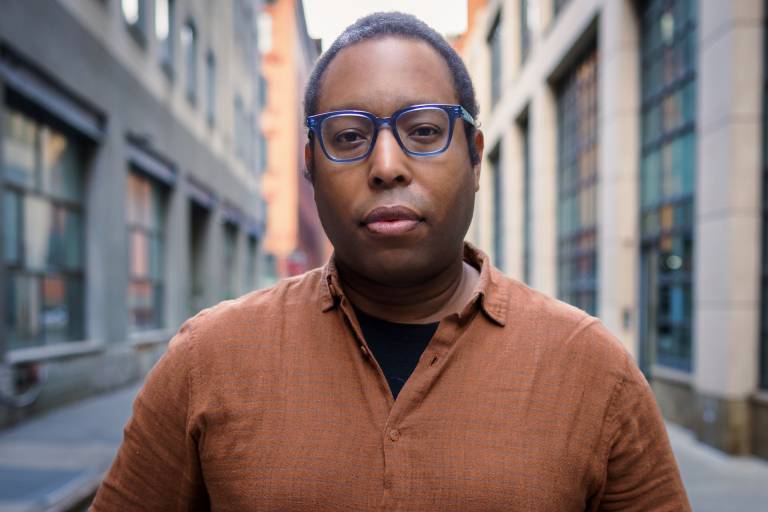Damani Partridge: Blackness as a Universal Claim
16 October 2023, 5:30 pm–7:00 pm

In this talk, Damani J. Partridge will examine the possibilities and limits of a universalized Black politics.
This event is free.
Event Information
Open to
- All
Availability
- Yes
Cost
- Free
Organiser
-
Olivia Scher
Location
-
IAS Common Ground (G11)South WingGower StreetLondonWC1E6BT
In this talk, Damani J. Partridge will examine the possibilities and limits of a universalized Black politics. Young people in Germany of Turkish, Arab, and African descent use claims of Blackness to hold states and other institutions accountable for their everyday struggle. Partridge tracks how these youth invoke the expressions of Black Power, acting out the medal-podium salute from the 1968 Olympics, proclaiming "I am Malcolm X," expressing mutual struggle with Muhammad Ali and Spike Lee, and standing with raised and clenched fists next to Angela Davis. Partridge also documents the demands by public-school teachers, federal-program leaders, and politicians that young immigrants account for the global persistence of anti-Semitism as part of the German state's commitment to anti-genocidal education. He uses these stories to interrogate the relationships among European Enlightenment, Holocaust memory, and Black futures, showing how noncitizens work to reshape their everyday lives. In doing so, he demonstrates how the concept of Blackness energizes, inspires, and makes possible participation beyond national belonging for immigrants, refugees, Black people, and other People of Color.
Damani J. Partridge is a Professor of Anthropology and Afroamerican and African Studies at the University of Michigan, where he has served on the faculty since receiving his Ph.D. in Anthropology from the University of California-Berkeley in 2003. At the University of Michigan he is also affiliated with the Department of Germanic Languages and Literatures. He has published broadly on questions of citizenship, affect, urban space, sexuality, decolonization, post-Cold War concepts of freedom, Holocaust memorialization, African American military occupation, Blackness and embodiment, the production of noncitizens, the culture and politics of “fair trade,” and the Obama moment in Berlin. He has also made and worked on film documentaries for private and public broadcasters in the United States and Canada, and he currently directs the comparative Filming Future Cities Project in Detroit and Berlin (see filmingfuturecities.org). His first book, Hypersexuality and Headscarves: Race, Sex, and Citizenship in the New Germany, was published in the New Anthropologies of Europe series with Indiana University Press in 2012. His most recent scholarly monograph, Blackness as a Universal Claim: Holocaust Heritage, Noncitizen Futures, and Black Power in Berlin was published with the University of California Press in December 2022. Damani Partridge has additionally co-edited a special issue of the journal Public Culture under the title “Interrogating ‘Diversity.’” He has published journal articles and book chapters widely and across disciplines in both the United States and Germany. Recipient of multiple Diversity Ally and Diversity Service awards from the University of Michigan, he has additionally held several prestigious research fellowships from Germany’s Alexander von Humboldt Foundation and the German Academic Exchange Service (DAAD). A member of the German Research Foundation’s Sponsored Network on “Black Diaspora and Germany” from 2010 to 2018, he has been the Co-Convener of the European Association of Social Anthropologists Network on “Anthropology of Race and Ethnicity” since 2017. Current Vice-President of the German Studies Association, he has been elected to become the next President of this international professional organization in 2024.
This event is part of the [Black Europe] Speaker Series, organised by the UCL European Institute.
This event runs as part of our Jean Monnet Centre of Excellence (2023-26) programme, co-funded by the Erasmus+ programme European Union. It is organised in cooperation with the UCL School of European Languages, Culture and Society, and the Centre for Migration and Diaspora Studies, Department of Anthropology and Sociology at SOAS.


 Close
Close

